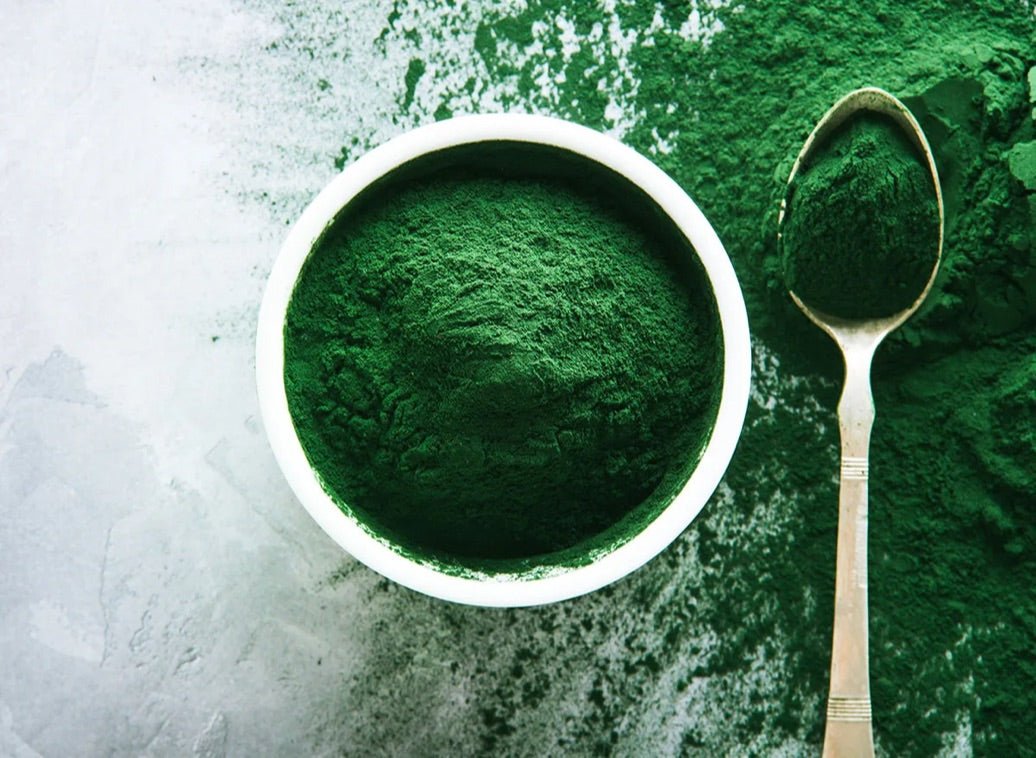If you’re like most people, you’ve probably never heard of spirulina. And if it’s not part of your regular supplementation regimen, let’s examine why you might want to consider adding it to your daily routine!
What is Spirulina?
Spirulina is a type of natural algae that grows in both freshwater and saltwater environments. It's often referred to as a “superfood” because it contains an incredibly high concentration of essential vitamins and minerals. This superfood has been shown to provide incredible benefits for our bodies, not the least of which is a powerful pigment-protein called phycocyanin, which research indicates may have pain-relieving, anti-inflammatory and brain-protective properties. In fact, spirulina has more protein than any other plant or animal source - which makes it one of the healthiest foods on the planet!
Health Benefits of Spirulina
The health benefits of spirulina are far-reaching and varied. Studies have found that this superfood can help lower cholesterol levels, improve heart health, promote weight loss, boost energy levels, and even fight cancer cells. Additionally, its high antioxidant content can help protect against free radical damage - making it great for overall longevity and wellness.
Nutritional Value
In addition to its many health benefits, spirulina also contains an impressive array of essential vitamins and minerals. It is packed with iron, magnesium, potassium, zinc, selenium vitamin B1 (thiamine), vitamin B2 (riboflavin), vitamin B3 (niacin) , vitamin C , vitamin D , and beta carotene. It also contains essential fatty acids such as omega-3s which are necessary for optimal health.
Environmental Sustainability
Sustainability is a growing consideration among consumers, the result of which is an increased interest in plant-based sources of nutrition. Spirulina is a sustainable and environmentally friendly superfood because it requires no soil or agricultural inputs to grow. This natural algae is grown without the use of pesticides or fertilizers, so it has a significantly lower environmental footprint than conventional crops. Because spirulina grows quickly and is highly nutritious, it can reduce food waste and help our current world hunger problem, making it both environmentally beneficial and socially responsible.
Any Possible Side Effects?
While spirulina is a safe and nutritious food source with many health benefits, it is important to note that in rare cases it can cause some side effects. For instance, people with seafood allergies may have an allergic reaction to the algaes found in spirulina. Additionally, those with autoimmune conditions should be cautious when consuming spirulina because it can cause an exacerbation of symptoms. Finally, spirulina can interact with certain medications so it's important to talk to your doctor before taking any supplements.
Does it Matter Where Spirulina is Sourced?
Absolutely! In the same way spirulina absorbs nutrients so effectively from the sun, it can also absorb undesirable toxins and bacteria from the evironment where it is grown. Spirulina harvested in the wild poses a significant risk of contamination. The algae may harbor toxins if it grows in a body of water that’s polluted with heavy metals, bacteria, or harmfulparticlescalled microcystins. Microcystin-contaminated algae supplements have been found in Italy, North America, and China, and these compounds are a growing public health concern due to their effects on your liver. This is why Living Prana sources Spirulina from India, where it is tank-grown in an environmentally pristine area, away from industrial, agricultural, and human development and is dried at low temperatures to preserve its nutritional value. The inverse of this absorbent capacity is that spirulina can also support the removal of toxins and heavy metals in our bodies. Research has shown that spirulina can bind to and remove toxic metals including lead, mercury, arsenic, and cadmium from the body.
Overall, when consumed in appropriate doses for most people, spirulina is a safe and nutritious superfood that can provide numerous health benefits. However, it is always best to consult a healthcare professional before consuming any new food or supplement.

